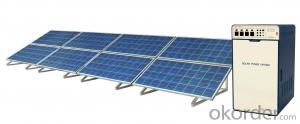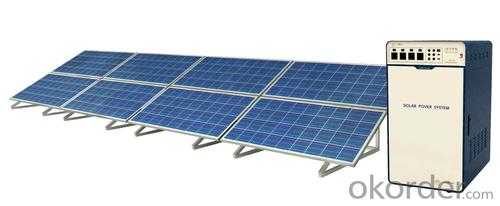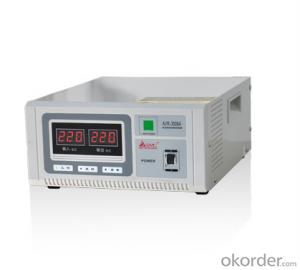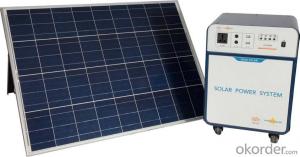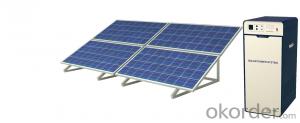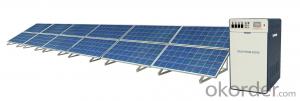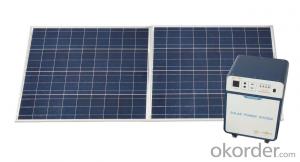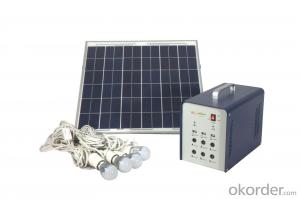Suncraft Solar Energy Systems JS-SPS-2000 Off-Grid Solar Power System
- Loading Port:
- Tianjin
- Payment Terms:
- TT OR LC
- Min Order Qty:
- 10 set
- Supply Capability:
- 10000 set/month
OKorder Service Pledge
Quality Product, Order Online Tracking, Timely Delivery
OKorder Financial Service
Credit Rating, Credit Services, Credit Purchasing
You Might Also Like
General Introduction
Solar power system provides alternating current and direct current, which is produced by the modules transforming solar power into power, to home lighting, household appliance and other DC appliance, such as cell phone and laptop.
Solar power system is widely used in area lack of power, for example house power supplying, monitoring, communication base, fire prevention in forest area, pasture and meadow, aquaculture etc.
We are dedicated to provide high quality off-grid PV products and systems to customers and has received a series of certificate, including ISO9001, TUV, UL, CE, CQC and RoHS.
Off-grid Solar Power System
High efficent PV module can produce more power.
Sine wave output is suitable for all kinds of load. Varieties of DC output, let it more
convenient for users.
The multifunction design make it easy to operation and maintenance.
Solar power system provides alternating current and direct current, which is produced by the modules transforming solar power into power, to home lighting, household appliance and other DC appliance, such as cell phone and laptop.
Solar power system is widely used in area lack of power, for example house power supplying, monitoring, communication base, fire prevention in forest area, pasture and meadow, aquaculture etc.
We are dedicated to provide high quality off-grid PV products and systems to customers and has received a series of certificate, including ISO9001, TUV, UL, CE, CQC and RoHS.
Off-grid Solar Power System
High efficent PV module can produce more power.
Sine wave output is suitable for all kinds of load. Varieties of DC output, let it more
convenient for users.
The multifunction design make it easy to operation and maintenance.
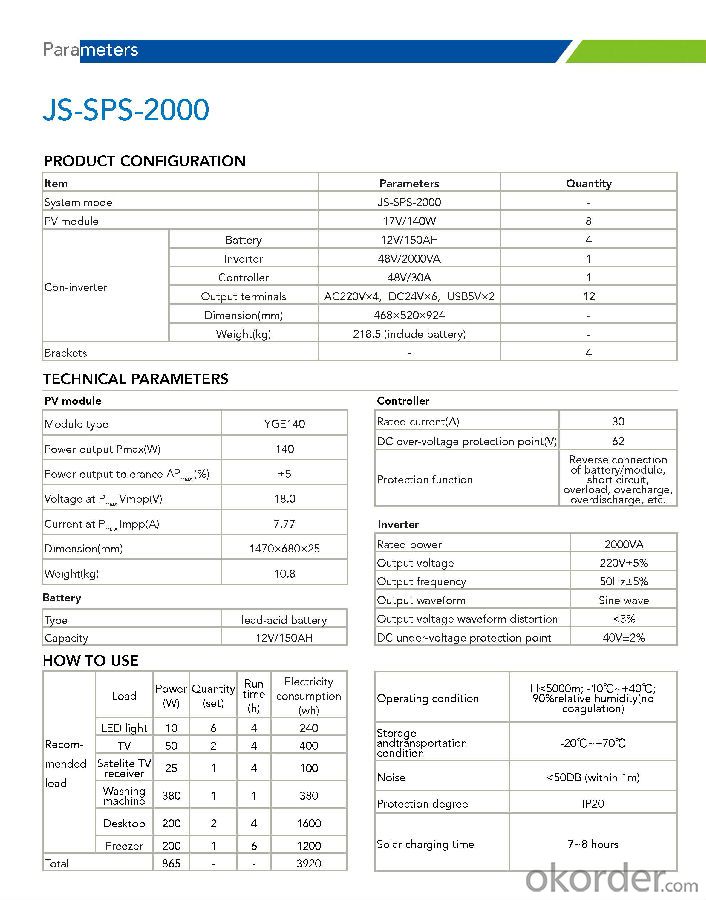
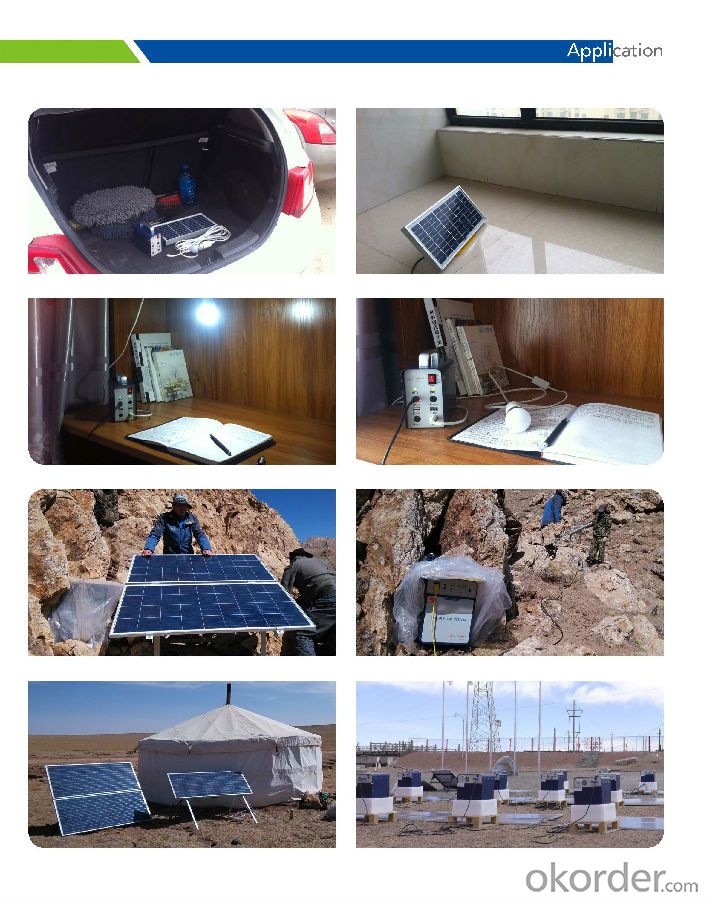

- Q: Can solar energy systems be used in rural areas without access to the power grid?
- Yes, solar energy systems can be used in rural areas without access to the power grid. In fact, solar energy is an ideal solution for off-grid communities as it provides a reliable and sustainable source of electricity. Solar panels capture sunlight and convert it into usable electricity through photovoltaic technology. This electricity can be used to power lights, appliances, and other electrical devices in homes, schools, healthcare facilities, and businesses. One of the main advantages of solar energy systems in rural areas without access to the power grid is their independence from traditional utility companies. These systems can operate autonomously, allowing communities to generate their own electricity without relying on external power sources. This is particularly beneficial in remote areas where extending power lines from the grid can be costly and impractical. Solar energy systems also have a long lifespan and require minimal maintenance, making them suitable for rural areas with limited resources and technical expertise. Additionally, solar panels produce clean energy, reducing reliance on fossil fuels and minimizing the environmental impact. Furthermore, solar energy systems can be combined with energy storage solutions, such as batteries, to store excess electricity generated during the day for use at night or during periods of low sunlight. This ensures a continuous power supply even without direct sunlight. Overall, solar energy systems are a viable and sustainable solution for rural areas without access to the power grid. They provide reliable electricity, reduce dependence on fossil fuels, and offer long-term cost savings.
- Q: Can solar energy systems be used in areas with high levels of electromagnetic radiation?
- Indeed, areas with elevated levels of electromagnetic radiation can accommodate the use of solar energy systems. The conversion of sunlight into electricity by solar panels occurs through the utilization of the photovoltaic effect, which remains unaffected by electromagnetic radiation. Nevertheless, it should be emphasized that excessive electromagnetic radiation might lead to interference with the solar system's electrical components, which could potentially diminish its efficiency. Consequently, it becomes imperative to implement proper shielding and grounding precautions to safeguard the system against potential damage or interference. Furthermore, it is recommended to conduct a comprehensive site assessment and seek guidance from experts to ensure the optimal operation of the solar energy system in areas with high levels of electromagnetic radiation.
- Q: Do solar energy systems require surge protection?
- Indeed, surge protection becomes imperative when it comes to solar energy systems. The susceptibility of these systems to power surges caused by lightning strikes, grid fluctuations, or other electrical disturbances necessitates the presence of surge protection. The fragile electronic components of a solar energy system, like inverters or charge controllers, can be severely compromised or even annihilated by power surges. Hence, the deployment of surge protection devices, such as surge protectors or surge arresters, is crucial in diverting excessive voltage away from the system, thereby safeguarding it from harm and ensuring its durability. Furthermore, the inclusion of surge protection is often mandated by electrical codes and regulations to guarantee the safety and dependability of solar energy systems.
- Q: Can solar energy systems be used in areas with high levels of windborne debris?
- Solar energy systems can indeed be used in areas with high levels of windborne debris. Although there is a risk of damage or obstruction to solar panels from windborne debris like tree branches or other objects, there are ways to address these concerns. A common approach is to install protective measures such as wire mesh screens or barriers around the solar panels. These screens allow sunlight to pass through while shielding the panels from potential damage caused by debris. Furthermore, optimizing the design and mounting of solar panels can enhance their ability to withstand high winds and debris. By installing panels at an angle that allows debris to slide off, accumulation can be prevented. Additionally, reinforcing mounting systems ensures stability during strong winds. Regular maintenance and cleaning of the panels are also crucial in areas prone to windborne debris. This practice eliminates any accumulated debris, guaranteeing optimal efficiency. It is important to note that the advantages of solar energy, including its environmental friendliness and cost-effectiveness, often outweigh the potential risks associated with windborne debris. With careful planning, installation, and maintenance, solar energy systems can be effectively utilized in areas with high levels of windborne debris.
- Q: Can a solar energy system be installed on a museum or cultural institution?
- Yes, a solar energy system can be installed on a museum or cultural institution. Solar panels can be mounted on the roof or in an open space surrounding the building to harness sunlight and convert it into electricity. This can help the institution reduce its reliance on conventional energy sources, lower its carbon footprint, and potentially save on electricity costs in the long run. Additionally, the installation of solar panels can also serve as an educational display, highlighting the institution's commitment to sustainability and renewable energy.
- Q: How do solar energy systems impact the stability of the electricity supply?
- Solar energy systems can have both positive and negative impacts on the stability of the electricity supply. On one hand, solar energy systems can enhance the stability by diversifying the energy sources and reducing dependency on traditional fossil fuels. Additionally, distributed solar systems can contribute to grid resilience and reduce the risk of large-scale power outages. However, the intermittent nature of solar energy can also introduce challenges, as the electricity supply becomes more reliant on weather conditions. To mitigate this, advanced technologies such as energy storage systems and smart grid management solutions are being used to ensure a stable and reliable electricity supply.
- Q: Can solar energy systems be used in areas with limited access to the grid?
- Yes, solar energy systems can be used in areas with limited access to the grid. Since solar energy relies on capturing sunlight and converting it into electricity, it can be harnessed anywhere there is ample sunlight, making it a viable solution for off-grid locations. With the installation of solar panels and batteries to store excess energy, these systems can provide reliable and sustainable electricity to areas without grid connections, improving access to power in remote or underdeveloped regions.
- Q: What are the advantages of solar energy systems?
- Solar energy systems offer several benefits. To begin with, solar energy is an endless source of power, relying on the sun's continuous existence. This stands in stark contrast to finite fossil fuels, which are depleting rapidly. Furthermore, solar energy is environmentally conscious. Unlike fossil fuels, solar energy systems do not release harmful greenhouse gases or pollutants that contribute to climate change and air pollution. This makes solar energy a clean and sustainable alternative that aids in reducing our carbon footprint and countering the adverse effects of global warming. Moreover, solar energy systems can significantly decrease electricity expenses. Once the initial investment in solar panels is made, the cost of harnessing solar energy remains relatively low. Solar energy is essentially free, with the only expenses being equipment maintenance and occasional repairs. This can result in substantial long-term savings on energy bills, especially considering the continuous rise in traditional electricity costs. Additionally, solar energy systems promote energy independence. By generating your own electricity, you become less reliant on utility companies and the fluctuating prices of fossil fuels. This independence enhances energy security, as solar energy systems are not susceptible to supply disruptions or price fluctuations caused by geopolitical tensions or natural disasters. Lastly, the installation of solar energy systems stimulates local economies and job creation. The solar industry has experienced significant growth, leading to the creation of numerous jobs in manufacturing, installation, and maintenance. This not only boosts the economy but also provides employment opportunities in a rapidly expanding sector. In conclusion, the benefits of solar energy systems are manifold. From being a renewable and environmentally friendly power source to reducing electricity expenses, providing energy independence, and generating jobs, solar energy proves to be a viable and sustainable solution for our energy needs.
- Q: Can solar energy systems be installed on sports stadiums?
- Yes, solar energy systems can be installed on sports stadiums. Many stadiums around the world have already installed solar panels to generate clean and renewable energy. These systems can help offset the energy demand of the stadium, reduce carbon emissions, and save costs in the long run.
- Q: Can a solar energy system be installed on a sloped roof?
- A sloped roof is capable of accommodating a solar energy system. Indeed, it is quite customary to install solar panels on such roofs. The efficiency of the system can actually be enhanced by the angle and orientation of the roof. When the solar panels are tilted at the optimal angle, they absorb sunlight more effectively and generate maximum energy output. Furthermore, the incline of the roof aids in self-cleaning as rainwater effortlessly washes away any dirt or debris that might accumulate on the panels. Nevertheless, it is crucial to assess the structural stability of the roof and verify its capacity to bear the weight of the solar panels.
Send your message to us
Suncraft Solar Energy Systems JS-SPS-2000 Off-Grid Solar Power System
- Loading Port:
- Tianjin
- Payment Terms:
- TT OR LC
- Min Order Qty:
- 10 set
- Supply Capability:
- 10000 set/month
OKorder Service Pledge
Quality Product, Order Online Tracking, Timely Delivery
OKorder Financial Service
Credit Rating, Credit Services, Credit Purchasing
Similar products
Hot products
Hot Searches
Related keywords
